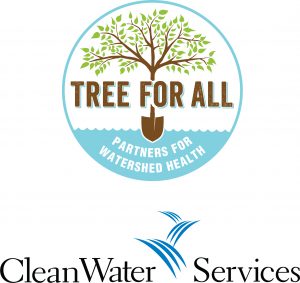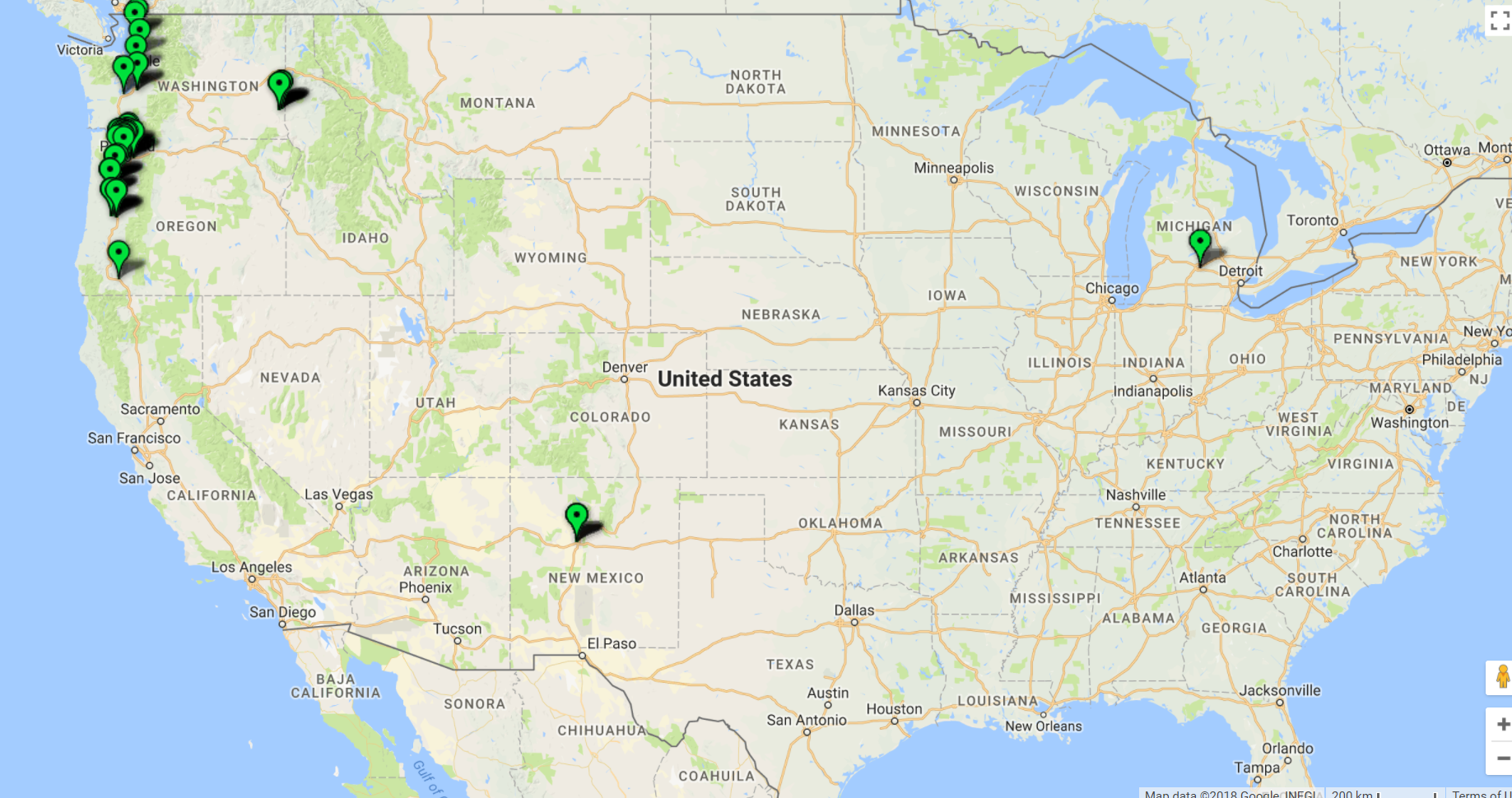Urban Green Infrastructure Summit
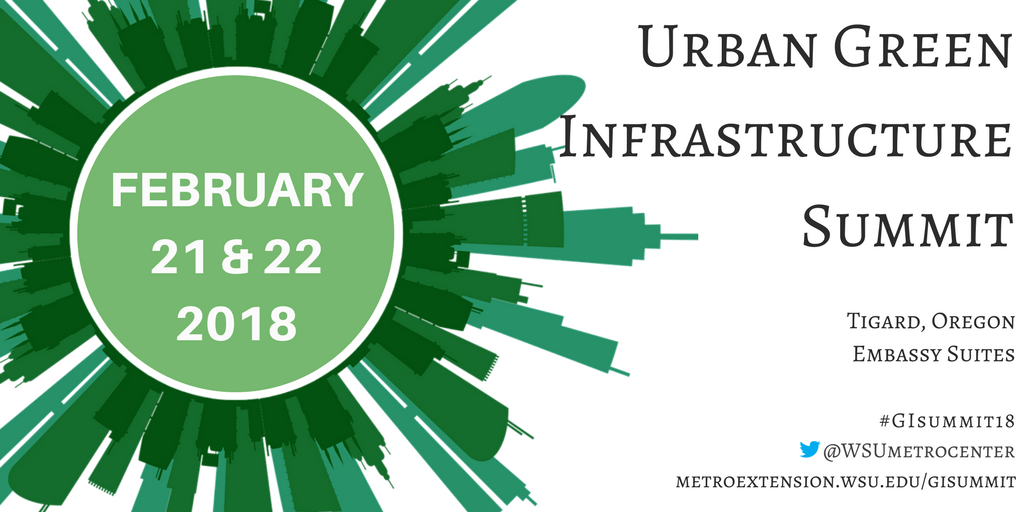
Creating new collaborative networks, identifying research and education priorities, and sharing existing resources.
Metropolitan areas face many challenges, including those of urban flooding, storm-water management, air and water quality, urban heat islands, chronic diseases and public health issues, access to green spaces, and equity and social justice. Urban green infrastructure has a role in addressing all these urban issues.
Green infrastructure includes vegetation, soils, and other elements and practices that restore some of the natural processes required to manage water and create healthier urban environments (EPA. October, 2017). Green Infrastructure elements may be integrated in communities in single, small-scale applications or networks of practices spanning entire watersheds. Examples include land conservation, urban tree canopy, green roofs, green parking, green streets and alleys, permeable pavements, bioswales, planter boxes, rain gardens, rainwater harvesting and downspout disconnection.
Low Impact Development, Sustainable Stormwater Solutions and Green Infrastructure terms will be used interchangeably for the purpose of this Summit.
- Agenda & Summit Structure
-
Structure
- Three working sessions exploring the latest developments in Green Infrastructure followed by small group break-out sessions to identify resources, build partnerships and build solutions. Summit themes include the following:
- Landscape scale challenges and management – land use planning, floods and floodplain management, climate resiliency, riparian and wetland management, open spaces
- Green Stormwater Infrastructure – runoff reduction, water quality treatment practices, urban trees and forests
- Non-traditional, Non-water Green Infrastructure Issues and Ideas – social justice and equity, public health, air quality and heat islands, contaminants of emerging concern, economics, regulations and incentives, outreach efforts.
- A fourth, research and education planning session, will develop applied research projects to address needs and opportunities identified at the Summit. (Feb 22: 3:30-7:00 pm) OPTIONAL.
Agenda
Download agenda here
Feb 21: morning and afternoon sessions (7:30-5:00 pm)
- Welcome
- Morning Keynote:
Sarah Medary, Assistant City Manager, City of Eugene, Leading Transformation and Change – A Landscape Architect’s Journey. - Session 1: Landscape scale challenges and management (Session Chair: Derek Godwin, OSU)
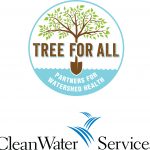
Session Sponsor - Presentations:
Scott Altenhoff: Using the Collective Impact Framework and Adaptive Management Techniques to Promote More Effective and Widespread Green Infrastructure.
Bruce Roll: Broadening the Scope to Increase Resilience: Expanding Stormwater Management Beyond Regulated Areas
Carrie Sanneman: Side Effects May Include: Cost Savings, Collaboration, Resilience – 3 stories of Integrated Water Management - Interactive break-out session
- Presentations:
- Luncheon Keynote panel: Chris Obropta, Rosana Da Silva: Rutgers University: Community-based Green Infrastructure Initiative in New Jersey
- Session 2: Green Stormwater Infrastructure (Session Chair: Ani Jayakaran, WSU)
- Presentations

Session Sponsor Bob Simmons: WSU Extension’s Green Stormwater Infrastructure Programming Experiences.
Sarah Whitney: Action Through Understanding – Incentivizing Voluntary Green Stormwater Infrastructure.
Doug Howie: Green Stormwater Infrastructure in Washington State: Status and Trends.
Joe Cook: Economics of Green Stormwater Infrastructure. - Interactive break-out session
- Presentations
Feb 22: morning and afternoon sessions (7:30-3:00 pm)
- Session 3: Non-traditional, Non-water Green Infrastructure Issues and Ideas (Session Chair: Kevan Moffett, WSU)
- Presentations
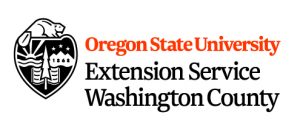
Session Sponsor Jennifer Karps: Trees as a Tool for Equity.
Vivek Shandas: Trees as Green Infrastructure: Implications of expanding urban canopy on urban heat, air quality, and residential energy use in the Portland metropolitan region.
Yekang Ko PhD: Socioeconomic and policy implications from a long-term monitoring of Sacramento Shade trees. - Interactive break-out session
- Presentations

Session Sponsor - Session 4: Research & Education planning session
(3:30-6:00 pm) (Session Chair: Julie Padowski, WSU)
- Three working sessions exploring the latest developments in Green Infrastructure followed by small group break-out sessions to identify resources, build partnerships and build solutions. Summit themes include the following:
- Desired Outcomes
-
Desired Outcomes
- Connect communities and university faculty to share existing resources, inform education and research priorities, and build new collaborative, problem-solving networks.
- Present research being conducted in the region.
- Present successes and challenges for implementing best practices in communities adopting urban/suburban green infrastructure.
- Build networks among communities and university faculty for future opportunities.
- City/County-Researcher-Extension: establish the networks to translate and share applied research to support municipality priorities with support from their local Extension programs.
- City/County peer-to-peer: allow sharing of lessons learned and best practices that may be adopted in other communities.
- University researcher / Extension peer-to-peer: establishing research collaborative networks to develop grant proposals, applied research projects.
- Event News
-
Sharing Knowledge at the Urban Green Infrastructure Summit in Portland, Oregon – Rutgers Cooperative Extension Water Resources Program
- Participants
-
Alphabetically listed below are the current individual participants in the Urban Green Infrastructure Summit.
- Kristen Acock – City of Portland, BES
- Adrienne Aiona – City of Portland, BES
- Idil Akin – Washington State University
- Ken Albin – City of Salem
- Scott Altenhoff – City of Eugene
- Kyle Anderson – City of Salem
- Meghna Babbar-Sebens – Oregon State University
- Whitney Bailey – EMSWCD
- John Barney – Bernalllo County
- Melissa Barton – Urban Biodiversity Hub
- Jan Boll– Washington State University
- Julia Bond – City of Portland, BES
- Tim Bonnin – Tualatin Hills Park & Recreation District
- Karen Bromley – City of Gresham
- L. Jane Brubaker – University of Oregon
- Sarah Bruce – City of Hillsboro
- Ruby Buchholtz – Tualatin River Keepers
- Melissa Buckingham – Pierce Conservation District
- Brian Busiek – Herrera Environmental Consultants
- Heejun Chang – Portland State University
- Joe Cook – WSU Economic Sciences
- Casey Cunningham – City of Portland, BES
- Rosana Da Silva – Rutgers, The State University of New Jersey
- Alan Danforth – City of Mount Vernon
- Cindy Davies – NMSU Bernalillo Cooperative Extension Service
- John Garlisch – NMSU Bernalillo County Cooperative Extension
- Chris Girard – City of Eugene
- Derek Dogwin – Oregon State University Extension Service
- Brad Gaolach – Washington State University
- Etta Goerl – Port of Portland
- Josh Gunn– MSU Extension, Greening Michigan Institute
- Doug Howie – Washington Department of Ecology
- Chantel Huff – Tualatin Soil and Water Conservation District
- Judith Isaac – MRSC
- Ani Jayakaran – Washington State University
- Danny Kapsch – City of Portland, BES
- Jennifer Karps – City of Portland Environmental Services
- Andrea Kent – City of Salem
- Yekang Ko – University of Oregon
- Fred Lockhart – City of Eugene
- Sarah Medary – City of Eugene
- Kevan Moffett – Washington State University
- Jennifer Morgan – Rogue Valley Sewer Services
- Jennifer Morse – Portland State University
- Jihane Nami – Portland State University
- Somayeh Nassiri – Washington State University
- Christopher Obropta – Rutgers, The State University of New Jersey
- Julie Padowski – WSU
- Briita Pajunas – Tualatin Soil and Water Conservation District
- Elizabeth Pape – City of Portland
- Neil Roberts – Washington County
- Maxine Rodrigues – City of Portland Bureau of Environmental Services
- Carrie Sanneman – Willamette Partnership
- Na’ama Schweitzer – City of Portland Bureau of Environmental Services
- Vivek Shandas – Portland State University
- Aaron Shaw – Tualatin Soil and Water Conservation District
- Kathy Shearin – EMSWCD
- Ted Shriro – City of Eugene
- Robert Simmons – Washington State University
- P. Sneed – Portland State University
- Henry Stevens – City of Portland, BES
- Doug Stienbarger – WSU Clark County Extension
- Dan Sullivan – Oregon State University
- Lacey Townsend – Tualatin Soil and Water Conservation District
- Anna Vandermer – Washigton State University
- Ken VanDomelen – Coast Pavement Services
- Sarah Whitney – Long Tom Watershed Council
- Patrick Willis – OSU Extension
- Tsion Woge – Oregon State University Extension Service
- Grey Wolf – City of Salem
Map of Urban Green Infrastructure Summit Attendees
- Summit Presentations
-
Session 1: Landscape scale challenges and management (Session Chair: Derek Godwin, OSU)
Morning Keynote:- Sarah Medary: Leading Transformation and Change – A Landscape Architect’s Journey
Presentations
- Scott Altenhoff: Using the Collective Impact Framework & Adaptive Management Techniques to Promote More Effective and Widespread Green Infrastructure
- Bruce Roll: Broadening the Scope to Increase Resilience: Expanding Stormwater Management Beyond Regulated Areas
- Carrie Sanneman: Side Effects May Include: Cost Savings, Collaboration, Resilience
Session 2: Green Stormwater Infrastructure (Session Chair: Ani Jayakaran, WSU)
Luncheon Keynote panel:
- Chris Obropta & Rosana Da Silva: Community-based Green Infrastructure Initiative in New Jersey
Presentations
- Bob Simmons: WSU Extension’s Green Stormwater Infrastructure Programming Experiences
- Sarah Whitney: Action Through Understanding – Incentivizing Voluntary Green Stormwater Infrastructure
- Doug Howie: Green Stormwater Infrastructure in Washington State: Status and Trends
- Joe Cook: Economics of Green Stormwater Infrastructure
Session 3: Non-traditional, Non-water Green Infrastructure Issues and Ideas (Session Chair: Kevan Moffett, WSU)
Presentations
- Jennifer Karps: Trees as a Tool for Equity
- Vivek Shandas: Trees as Green Infrastructure: Implications of expanding urban canopy on urban heat, air quality, and residential energy use in the Portland metropolitan region
- Yekang Ko PhD: Socioeconomic and policy implications from a long-term monitoring of Sacramento Shade trees
- Summit Speakers
-
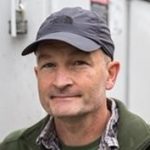 Scott Altenhoff
Scott Altenhoff
Urban Forestry Management Analyst
City of Eugene, Oregon
Email: Scott.R.Altenhoff@ci.eugene.or.usScott spends his days working to connect people with trees and the natural environment. His main focus is on strategic planning, program development, public education and stakeholder engagement. Prior to joining the City of Eugene in 2005, Scott worked for many years as a commercial arborist and forest surveyor throughout the Pacific Northwest. Scott has a B.A. in Classics (Latin, Greek, and Ancient Philosophy) from the University of Oregon and is currently working on a graduate certificate in Urban Forestry through Oregon State University. Scott was a recipient of the International Society of Arboriculture’s 2017 True Professionals of Arboriculture award and currently serves on the board for the Society of Municipal Arborists.
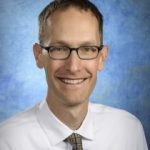 Joseph Cook
Joseph Cook
Associate Professor, Environmental Economics
Washington State UniversityJoseph Cook joined the School of Economic Sciences at Washington State University as an Associate Professor in August 2017 after ten years in the Evans School of Public Policy at the University of Washington. His research focus has primarily been on water and sanitation policy in low-income countries, water resources economics and policy, and nonmarket valuation. He has a new focus on green infrastructure and has an appointment with WSU Extension and the Washington Stormwater Center. He has conducted 12 household surveys in six countries, and is a Research Associate with the Kenya center of the Environment for Development initiative. Consulting assignments have included work for the Asian Development Bank, the Hopi Tribe in Arizona, and the Washington State legislature.
 Rosana Da Silva,
Rosana Da Silva,
Program Associate, Water Resources Program
Rutgers Cooperative Extension
Email: rdasilva@envsci.rutgers.eduRosana graduated in May 2011 from Rutgers, The State University of New Jersey with a B.S. in Environmental Sciences and a minor in Education and graduated in January 2016 from the Graduate School of Education at Rutgers, The State University of New Jersey with an Education Masters (Ed.M.) in Science Education. Rosana interned with the Water Resources Program from May 2010 to August 2011. During her internship, Rosana developed and delivered educational outreach programs to urban communities throughout New Jersey. Rosana has participated in the construction and maintenance of rain gardens, assisted in rain barrel workshops, and developed evaluation tools to measure the impact of outreach programs delivered. As a Program Associate, Rosana continues to develop, deliver, and evaluate educational and outreach programs to address water resources issues in New Jersey. Rosana also organizes, coordinates, and builds partnerships to establish municipal action teams focusing on green infrastructure initiatives within New Jersey’s urban communities. She provides support to the Water Resources Program’s marketing and social media engagement activities to increase awareness of water resources in the state and continues to participate in the planning, construction oversight, and maintenance of green infrastructure projects.
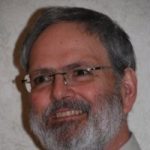 Doug Howie
Doug Howie
Stormwater Engineer
Washington Department of EcologyDoug Howie has more than 30 years experience in planning, design, and construction of stormwater projects. He is a stormwater engineer for the Department of Ecology working with permit managers to assist jurisdictions throughout the state in meeting their Permit requirements. He also manages the TAPE program where Ecology evaluates emerging technologies for use in Washington State. He is the Grant Manager for several Ecology funded research evaluating treatment capabilities of bioretention and water treatment residuals. Doug is a licensed PE in Washington and Idaho, a Life Member of ASCE, and an Adjunct Professor in Civil Engineering at St. Martin’s University in Lacey, WA.
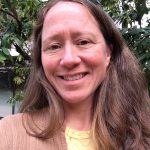 Jennifer Karps
Jennifer Karps
Tree Program Coordinator
Bureau of Environmental Services
City of PortlandJennifer Karps has an M.S. in biogeography, is an ISA-certified arborist and municipal specialist, and has over twenty years’ academic and practical experience in plant ecology, environmental science, and forest dynamics with a focus on urban environments. Since 2002, Jennifer has developed and supported programs for the city of Portland’s Urban Forestry and Watershed Services groups. Currently, Jennifer implements partnership-based tree planting and education programs for the City and teaches undergraduate and graduate-level resource management courses in the Geography Department at Portland State University. For more information on the tree program, visit: www.portlandoregon.gov/bes/trees.
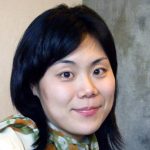 Yekang Ko, PhD.
Yekang Ko, PhD.
Assistant Professor of Landscape Architecture, BLA Director; Director, APRU Sustainable Cities and Landscapes Hub
University of OregonYekang Ko is an Assistant Professor at the University of Oregon where she teaches urban sustainability, energy landscapes, and landscape planning and design. She obtained her Ph.D. in Landscape Architecture and Environmental Planning from the University of California at Berkeley in 2012. Her research focuses on urban energy planning, green infrastructure, and physical planning and design for climate change mitigation and adaptation. In this talk, she presents her collaborative project with the USDA Forest Service on 22-year monitoring of survival for residential yard trees planted through Sacramento Shade, the largest and longest operating utility-sponsored shade tree planting program in the US, and their influence in long-term energy saving performance. From this study, she draws implications for data-driven green infrastructure planning and recommendations for urban tree planting programs. Target audiences are researchers, arborists, city planners, landscape architects and policy makers.
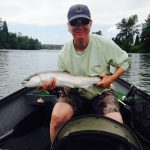 Sarah Medary
Sarah Medary
Assistant City Manager
Interim Public Works Director
City of EugeneSarah has a passion for leadership and is in her sweet spot when supporting or leading teams that are making people and places better. That’s why her current role as Eugene’s Public Works Director feels like home. As the Public Works Director, Sarah works closely with the City’s elected officials and executive team on some of the most exciting and challenging issues facing the community and organization. Balancing the needs of today and responsibility for the future keeps her engaged and curious.
Sarah’s passion for the outdoors drove her early educational pursuits in Horticulture and then Landscape Architecture. Prior to working for the City of Eugene she worked in landscape and irrigation construction in Fort Collins, Co and Seattle, WA. She recognized through those experiences that she wanted to be a designer of thoughtful solutions which led her to landscape architecture.
Sarah’s career at the City began in parks maintenance on the irrigation maintenance crew. Over the past 21 years, she has worked in four of the City’s six departments and in 2008 was promoted to Assistant City Manager. She’s helped lead the City through a number of community wide exercises including the re-development of downtown, the Eugene-Springfield Fire merger and Envison Eugene, the City’s 20 yr growth plan and Urban Growth Boundary expansion. She’s also led the way with many not so fruitful conversations such as Uber.
While she will take credit for some wins, she attributes most of her successes to the teams she has been honored to work with. She strongly believes that everyone is a leader and invests much of her time mentoring and helping others grow and succeed. Her passion for leadership inspired her to obtain her M.A. in Organizational Leadership from Gonzaga University in 2011 and she was awarded the Assistant Excellence in Leadership Award by the International City/County Management Association in 2012.
Balancing work and play is important to Sarah and while she has a lot of fun every day in her work, you can also find her fly fishing, boating, playing tennis, taking photos, cooking and hanging out with her partner and their itty bitty Australian Shepherd, Rio.
 Christopher C. Obropta, Ph.D., P.E.
Christopher C. Obropta, Ph.D., P.E.
Extension Specialist in Water Resources, Rutgers Cooperative Extension Professor, Department of Environmental Sciences, School of Environmental & Biological Sciences
Rutgers University
Email: obropta@envsci.rutgers.eduChris has a doctorate in Civil Engineering from Stevens Institute of Technology, an M.S. in Civil Engineering from New Jersey Institute of Technology, and a B.S. in Civil Engineering from New Jersey Institute of Technology. Prior to joining Rutgers, Dr. Obropta was an environmental consultant for 12 years at Omni Environmental Corporation. Dr. Obropta has a background in watershed management, water quality modeling, hydrologic and hydraulic modeling, and coastal engineering. His specific experience includes watershed restoration, onsite wastewater treatment system design and management, wasteload allocations and TMDL studies, stormwater management, wetland design, effluent dilution analyses, longshore sediment transport, computer-aided design, and geographic information systems (GIS). He teaches Bioresource Engineering Design I & II, where he directs student design teams to develop solutions to complex real-life engineering problems.
With his extensive and impressive background Dr. Obropta leads his highly specialized team of professional staff who are determined to create innovative solutions to water quality issues in New Jersey.
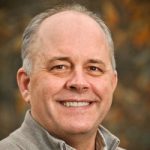 Bruce Roll
Bruce Roll
Director – Watershed Management Department
Clean Water Services (CWS)Bruce is the Director of Watershed Management for Clean Water Services (www.cleanwaterservices.org) and the nonprofit Clean Water Institute (CWI) in Hillsboro, Oregon. He is also a founding member of the Intertwine Alliance (www.theintertwine.org) and key developer of the Tree For All Landscape Conservation Program (www.jointreeforall.org) For more than 30 years, Bruce has worked with public utilities and local governments interested in the conservation of natural resources. Since 2007, Bruce has helped manage one of the United States’ largest and most successful landscape conservation programs the Tualatin Watershed of northwest Oregon. During his tenure at CWS, more than 120 river miles have been restored across more than 25,000 acres in the Tualatin Watershed. Bruce attended Colorado State University where he received a BS in Environmental Microbiology. In addition, Bruce received a MS and PhD from the Water Resources Research Center at the University of Hawaii and a MPH in management from the School of Public Health.
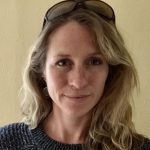 Carrie Sanneman
Carrie Sanneman
Clean Water Program Manager
Willamette Partnership
Email: sanneman@willamettepartnership.orgCarrie manages the Clean Water program at Willamette Partnership, a conservation non-profit that works across the Northwest. Her work focuses on demonstrating how nature can support clean water, finding new ways to fund good work on the ground, and building partnerships to support lasting change in how we manage water resources. Previous to her role at Willamette Partnership, Carrie worked in conservation and restoration with state and federal agencies and research institutions for the better part of a decade. She currently serves on the board of the East Multnomah Soil and Water Conservation District. She has a Masters of Environmental Science and Management from the Bren School of Environmental Science and Management, and a B.S. in Biology from Iowa State University.
 Vivek Shandas
Vivek Shandas
Professor, Urban Studies and Planning;
Research Director, Institute for Sustainable Solutions; Director, Sustaining Urban Places Research (SUPR) Lab
Portland State UniversityVivek Shandas is a Professor of Urban Studies and Planning and the Research Director for the Institute for Sustainable Solutions at Portland State University. Dr.Shandas’ research aims to address policy relevant questions by examining the feedbacks among urban form, governance systems, and human health and well being. This talk will provide a summary of over a decade of research examining the implications of development patterns on tree canopy in the Portland metro region, with a specific emphasis on the role of trees in mediating urban heat, air quality, and residential energy use. Dr.Shandas serves as Chair of the City of Portland’s Urban Forestry Commission, and is a Principal at CAPA Strategies, LLC, a global consulting group that helps communities prepare for climate-induced disruptions.

Bob Simmons
Olympic Region Water Resources Regional Specialist
WSU Extension
Bob Simmons is WSU Extension’s Olympic Region Water Resources Regional Specialist and serves as WSU Extension’s Water Resources Program Leader. He has over 25 years of experience in providing community based natural resource stewardship and conservation programs focusing on water quality in the Puget Sound region. Over the past twelve years he has focused much of his work on stormwater management issues through his extension programming efforts. He has served as the chairperson of the Washington Governor’s Council on Environmental Education and led the USDA National Institute for Food and Agriculture’s PNW Watershed Management Education Program.
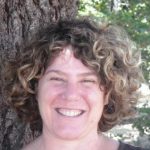 Sarah Whitney
Sarah Whitney
Landscape architect; Urban Waters and Wildlife Program
Long Tom Watershed CouncilSarah is a landscape architect with over 20 years experience designing ecologically sensitive landscapes. The last 4 years, she has managed the Urban Waters and Wildlife Program for the Long Tom Watershed Council (LTWC), focusing on Trout Friendly Landscapes which entails working closely with commercial and industrial businesses to voluntarily install green stormwater infrastructure and other water quality improvement strategies. Prior to working with LTWC, Sarah was the principle instructor for the Water Conservation Technician Program at Lane Community College after closing the muti-disciplinary firm Habitats Inc which she co-founded and was the principle landscape designer for 13 years. Sarah has a degree in Landscape Architecture from the University of Oregon, and a Fine Arts Management Degree from the University of Long Island at Southampton, and is a certified Sustainable Building Advisor.
Thank You Host Committee!

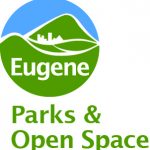

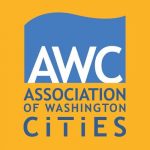
Thank You Sponsors!


